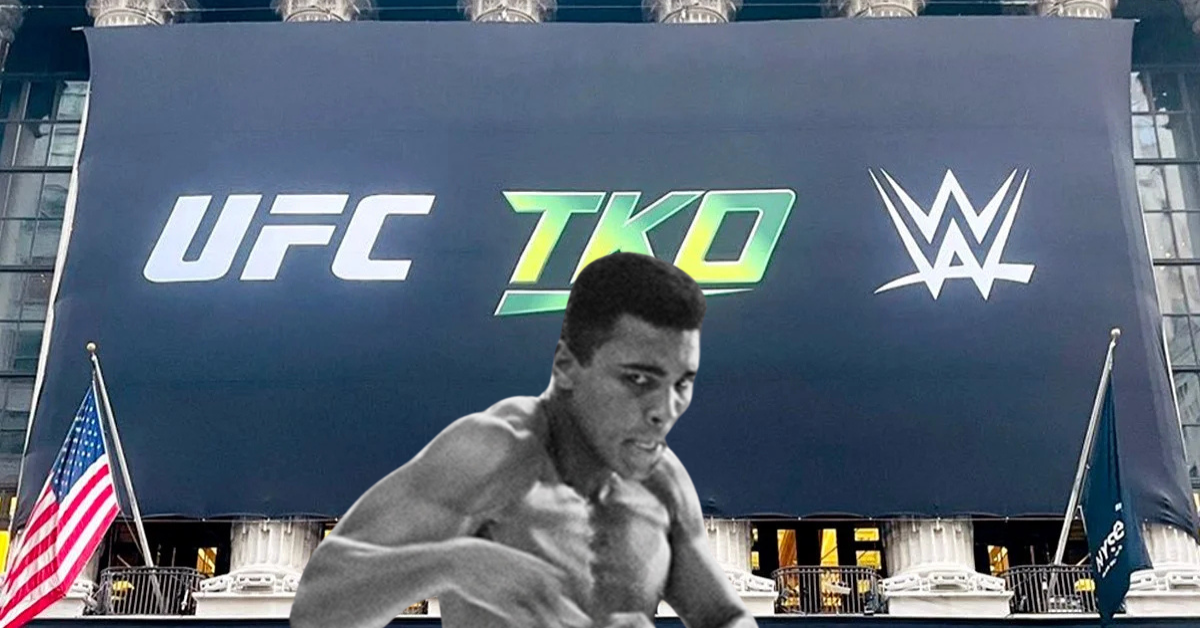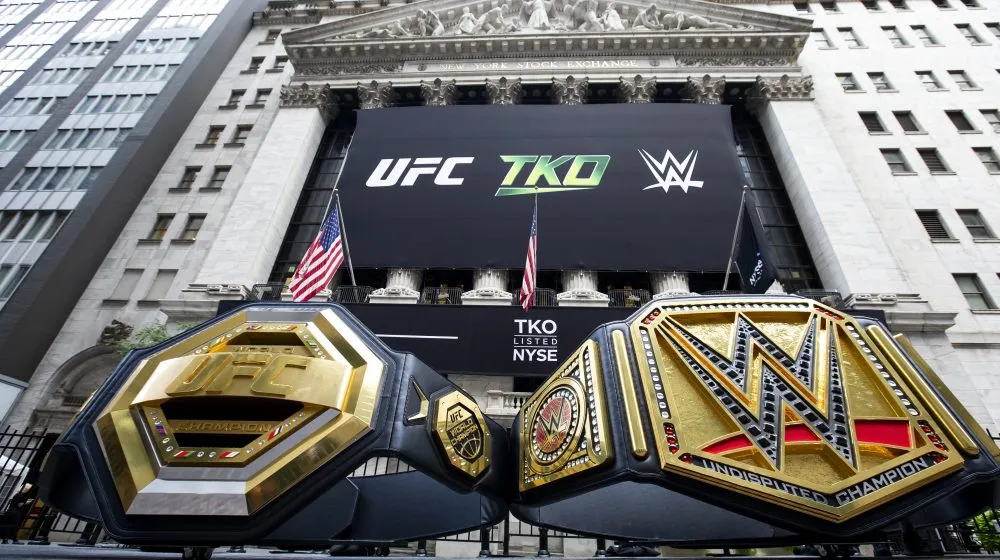

What Is TKO Trying to Change About the Ali Act? TKO Group Holdings, the parent company of UFC and WWE, is pushing for significant changes to the Muhammad Ali Boxing Reform Act, a federal law enacted in 2000 to protect professional boxers from exploitation and unethical practices. The original Ali Act was designed to ensure transparency in contracts and payments, prevent conflicts of interest, such as managers also acting as promoters, and provide oversight through state and federal commissions. Its goal was to safeguard fighters against the dominance of powerful promoters in a fragmented and loosely regulated industry.
TKO Looking to Change the Ali Act
TKO’s proposed amendments are encapsulated in the “Muhammad Ali American Boxing Revival Act,” which envisions the creation of Unified Boxing Organizations (UBOs). These UBOs would fundamentally alter the traditional boxing landscape by serving both as promoters and sanctioning bodies. Unlike existing entities such as the WBA, WBO, WBC, and IBF, UBOs would be able to organize matches, run their own ranking systems, and award championship titles independently.
In addition to restructuring how the sport is governed, the proposal includes measures aimed at improving fighter welfare, such as guaranteeing minimum pay rates (for example, $150 per round), providing medical insurance, ambulances, ringside doctors, and coverage for training injuries. There are also requirements for no-notice drug testing and guaranteed access to rehabilitation facilities.
Revival Act
While TKO frames these changes as modernization, offering fighters better pay, improved safety standards, and more opportunities, critics warn the amendments could undermine the core protections established by the Ali Act. By allowing promoters to control both rankings and titles, the Revival Act risks reintroducing conflicts of interest that the original law sought to eliminate.

At the heart of TKO’s lobbying efforts is the creation of “Unified Boxing Organizations” (UBOs). Under the Revival Act, these UBOs could:
- Serve as both promoter and sanctioning body, running their own ranking systems and championships.
- Operate independently from traditional entities like the WBA, WBO, WBC, and IBF.
Key Details of the Proposal:
- System for Title Belts & Rankings: A UBO could organize matches, award titles, and determine rankings for all boxers under contract, without oversight from independent bodies.
- Minimum Fighter Compensation: Proposed mandatory minimums, such as $150 per round, along with requirements for medical insurance, ambulances, and ringside doctors.
- Athlete Welfare Provisions: Additional mandates for health insurance, no-notice drug testing, and guaranteed access to training and rehabilitation facilities
- Insurance During Training: UBOS must provide coverage not only during competition, but while boxers are in training camps.
- Promoter-Controlled Infrastructure: Granting promotional entities the ability to operate their own facilities, studios, and fight venues (such as the UFC’s APEX facility).
If enacted, the Revival Act would likely lead to:
- TKO creating its own UBO, controlling matchmaking, titles, and fighter futures.
- The demise or absorption of smaller promoters and club events.
- The packaging of minor league and developmental fights for broadcast as part of a grander TKO media property – further consolidating influence.
This concentration of power may foster a monopolistic environment where major promoters, potentially TKO itself, could dominate the sport from top to bottom. Smaller promoters and grassroots organizers fear being priced out due to stringent financial and insurance requirements, which could render local and club-level boxing events unsustainable. Such consolidation is reminiscent of other industries where corporate takeovers reduced competition and diversity—sparking concerns about the “Sinclairification” of boxing.
Critics argue that the Revival Act could effectively create an antitrust exemption for TKO and similar entities without the explicit legal framework of such an exemption. By setting federal baseline standards for pay and safety, the legislation could shield dominant promoters from competition while appearing to protect athletes. This raises questions about the true beneficiaries of these reforms, with the potential for the fighters’ welfare to be overshadowed by corporate control.
The UFC has faced major antitrust scrutiny for its business practices, with fighters alleging that the promotion wields monopoly power to suppress fighter pay and eliminate competition. In a series of class-action lawsuits, most notably Le v. Zuffa, fighters argued that the UFC leveraged its dominance in the mixed martial arts market to lock athletes into restrictive contracts, acquire or block rival promoters, and ensure that fighters receive only a small fraction of total revenues compared to athletes in other major sports. These antitrust claims resulted in a $375 million settlement approved in 2025, benefiting more than 1,100 fighters.
TKO Group Holdings has signaled a major entrance into professional boxing, working with partners in Saudi Arabia.

If passed, the legislation would position TKO to launch its own Unified Boxing Organization, controlling matchmaking, titles, and fighter contracts much like it has in MMA through the UFC. This could usher in a new era of centralized control, with smaller promoters absorbed or pushed out, and boxing’s developmental and minor leagues repackaged as part of a large, TKO-driven media ecosystem.
What is The Ali Act?
The Muhammad Ali Boxing Reform Act, commonly known as the Ali Act, was enacted in 2000 in response to longstanding concerns about corruption, unfair business practices, and a lack of transparency in the professional boxing industry. Named after the legendary boxer Muhammad Ali, the law aimed to address issues such as exploitative contracts, manipulation of fighter rankings, and conflicts of interest, where promoters could unduly influence both matchmaking and championship outcomes. The act empowered state and federal commissions to provide greater oversight and required promoters to disclose financial arrangements to fighters, with the ultimate goal of safeguarding boxers from abuse and restoring integrity to the sport.

